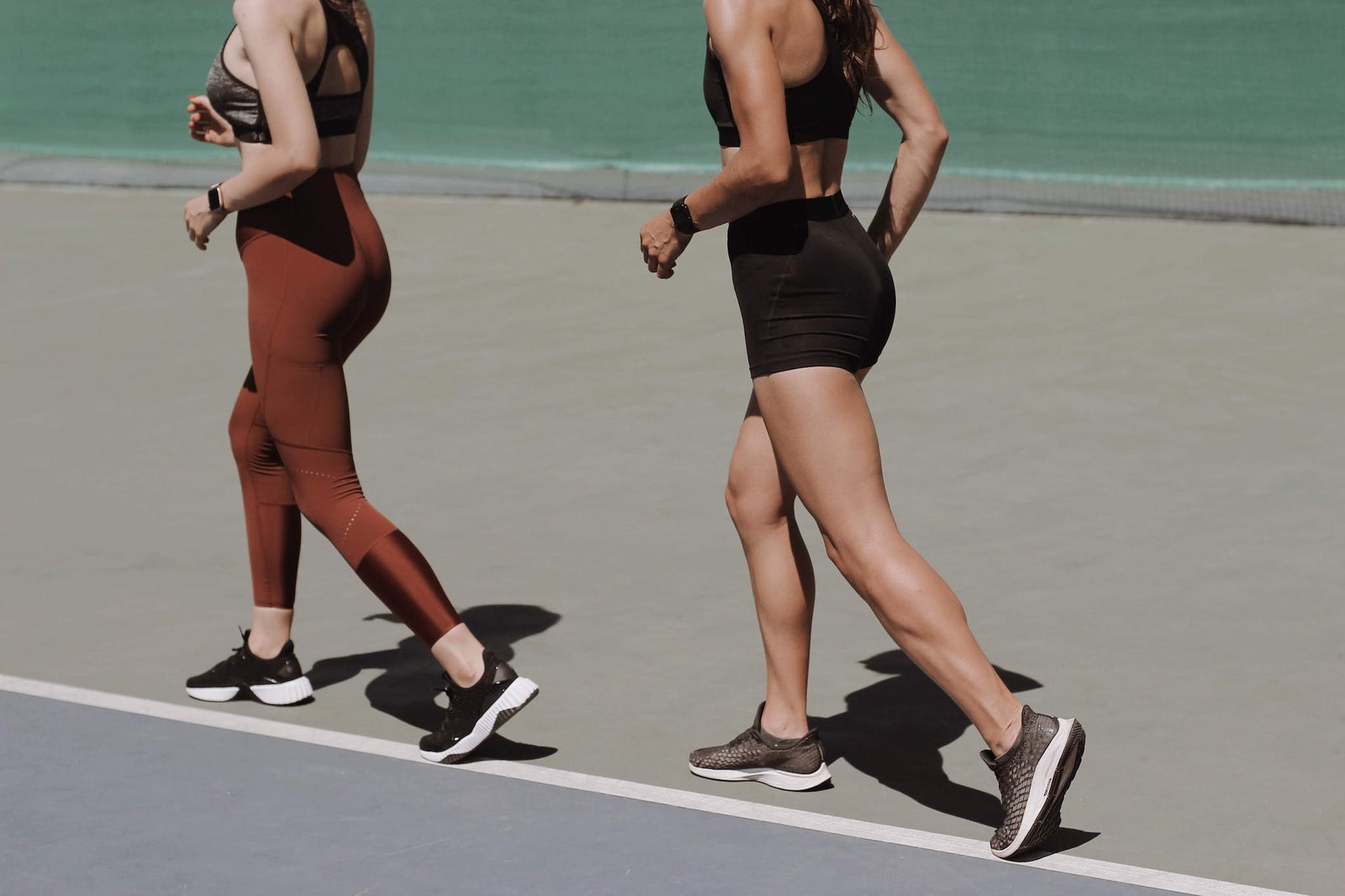Drinking Water to Prevent Muscle Cramps and Spasms
There are some affiliate links below, but they are all products I highly recommend. For more info, view my disclosure here.
Are you tired of being sidelined by painful muscle cramps and spasms? Don’t worry, there’s a simple solution.
By drinking enough water, you can prevent these uncomfortable muscle issues and keep your body in peak condition. Dehydration is often the culprit behind muscle cramps, and staying properly hydrated helps maintain the balance of electrolytes needed for optimal muscle function.
In this article, we’ll explore the importance of hydration and provide helpful tips to keep those muscle spasms at bay.
The Importance of Hydration for Muscle Health
Staying properly hydrated is crucial for maintaining healthy muscles and preventing cramps and spasms.
When you exercise or engage in physical activities, your muscles work hard and produce heat. This heat needs to be regulated in order for your muscles to function optimally. When you’re dehydrated, your body’s ability to regulate its temperature is compromised, leading to a higher risk of muscle cramps and spasms.
Water plays a vital role in muscle health. It helps to carry nutrients and oxygen to your muscles, allowing them to perform at their best. When you’re well-hydrated, your muscles are more flexible and less prone to injury. Additionally, water helps to flush out metabolic waste products that accumulate in your muscles during exercise, reducing the risk of muscle soreness and stiffness.
Dehydration can have a negative impact on your muscles. It can lead to muscle fatigue, weakness, and even cramping. When you don’t drink enough water, your muscles can become tense and more susceptible to painful cramps and spasms. By staying hydrated, you can help prevent these uncomfortable muscle issues and maintain optimal muscle function.
How Dehydration Can Lead to Muscle Cramps
If you don’t stay hydrated, your muscles can cramp and spasm. Dehydration occurs when your body loses more fluid than it takes in. When this happens, the balance of electrolytes in your body, such as sodium and potassium, gets disrupted. These electrolytes play a crucial role in muscle function. Without proper hydration, your muscles don’t receive the necessary nutrients and electrolytes they need to function properly. As a result, they can cramp and spasm.
When you’re dehydrated, your muscles are more prone to cramping because the lack of fluid impairs their ability to contract and relax. This can be especially problematic during physical activities or workouts when your muscles are working harder and producing more waste products, such as lactic acid. Without enough water to flush out these waste products, they can accumulate in your muscles, leading to cramps and spasms.
To prevent muscle cramps and spasms, it’s essential to stay hydrated. Make sure to drink enough water throughout the day, especially during exercise or in hot weather when you’re more likely to sweat. Aim for at least 8 cups (64 ounces) of water daily, and consider consuming electrolyte-rich drinks or foods to replenish the minerals lost through sweat.
Understanding the Link Between Electrolytes and Muscle Function
You should know that electrolytes are essential for your muscles to function properly. Electrolytes are minerals that carry an electrical charge and help regulate various bodily functions, including muscle contractions. When you exercise or engage in physical activity, your muscles rely on electrolytes to transmit nerve signals and contract efficiently. Sodium, potassium, calcium, and magnesium are some of the key electrolytes that play a crucial role in muscle function.
When you sweat during exercise or in hot weather, you lose electrolytes along with water. This loss can disrupt the balance of electrolytes in your body and lead to muscle cramps, spasms, and even weakness. That’s why it’s important to replenish your electrolyte levels by drinking fluids that contain these essential minerals, such as sports drinks or electrolyte-enhanced water.
In addition to maintaining proper hydration, consuming foods rich in electrolytes can also help support your muscle health. Foods like bananas, oranges, spinach, and yogurt are excellent sources of electrolytes and can be incorporated into your diet to ensure you’re getting an adequate supply.
Hydration Tips to Prevent Muscle Spasms
Ensuring adequate hydration is key to maintaining the balance of electrolytes in your body and supporting muscle health. When you don’t drink enough water, your body becomes dehydrated, leading to a decrease in electrolyte levels. This imbalance can result in muscle cramps and spasms, which can be quite painful and disruptive to your daily activities.
To prevent muscle spasms, it’s important to drink enough water throughout the day. Aim for at least 8 cups of water, or about 64 ounces. Remember, caffeinated beverages and alcohol can actually dehydrate you, so it’s best to limit your intake of these drinks. Instead, opt for water or electrolyte-rich beverages like sports drinks or coconut water.
Additionally, make it a habit to drink water before, during, and after your workouts. When you exercise, you lose fluids through sweat, increasing your risk of dehydration and muscle cramps. By staying hydrated, you can help prevent these issues and keep your muscles functioning optimally.
Lastly, listen to your body. If you start feeling thirsty, that’s a sign that you’re already dehydrated. Don’t wait until you’re thirsty to drink water; instead, sip on water throughout the day to maintain proper hydration levels.
The Role of Water in Muscle Recovery
Staying hydrated plays a crucial role in helping your muscles recover after exercise. When you work out, your body loses water through sweat, and this can lead to dehydration. Dehydration can cause muscle cramps and spasms, making it difficult for your muscles to recover effectively. By drinking enough water before, during, and after your workout, you can replenish the lost fluids and help your muscles recover more quickly.
During exercise, your muscles generate heat, and water helps regulate your body temperature. When you’re dehydrated, your body struggles to cool down, which can lead to muscle fatigue and strain. By staying hydrated, you can support your body’s cooling mechanisms and prevent muscle cramps and spasms.
Water is also essential for transporting nutrients and oxygen to your muscles. When you’re dehydrated, the delivery of these vital substances is compromised, slowing down the recovery process. By drinking enough water, you ensure that your muscles receive the necessary nutrients to repair and rebuild themselves.
In addition to drinking water, you can also benefit from hydrating foods like fruits and vegetables, which contain high water content. Including these foods in your post-workout meals can further support your muscle recovery.
Common Causes of Dehydration and Muscle Cramps
Now, let’s discuss the common causes of dehydration and muscle cramps, so you can better understand how to prevent them.
Dehydration occurs when your body loses more fluids than it takes in, leaving you feeling thirsty and fatigued. One of the main causes of dehydration isn’t drinking enough water throughout the day. Remember to keep a water bottle handy and sip on it regularly to stay hydrated.
Another common cause of dehydration is excessive sweating, especially during intense physical activity or in hot weather. When you sweat, your body loses water and important electrolytes like sodium and potassium, which are essential for proper muscle function. To replenish these electrolytes, consider drinking sports drinks or eating foods rich in electrolytes, such as bananas or coconut water.
Additionally, certain medical conditions like diabetes or kidney problems can contribute to dehydration. It’s important to manage these conditions effectively and stay aware of any symptoms of dehydration that may arise. Medications like diuretics or laxatives can also increase your risk of dehydration, so make sure to consult with your doctor about any potential side effects.
Hydration Guidelines for Active Individuals
To keep your body properly hydrated during physical activity, it’s important to be mindful of your fluid intake and replenish electrolytes regularly. When you engage in exercise or any form of physical exertion, your body loses water through sweat, leading to dehydration. This can result in muscle cramps, fatigue, and decreased performance.
It’s recommended that you drink water before, during, and after your workout to maintain optimal hydration levels.
During moderate-intensity exercise, such as brisk walking or cycling, aim to consume 7-10 ounces of fluid every 10-20 minutes. If you’re engaging in high-intensity exercise or exercising in hot weather, it’s advisable to drink even more. Sports drinks that contain electrolytes can be beneficial, as they help replace the sodium and potassium lost through sweat. These electrolytes play a crucial role in muscle function and preventing muscle cramps.
Remember to listen to your body’s thirst signals and drink accordingly. Dark urine or feeling thirsty are signs of dehydration, so be sure to hydrate yourself promptly. Additionally, be aware that factors such as humidity, altitude, and individual sweat rates can affect your fluid needs.
Other Benefits of Drinking Water for Muscle Health
By staying properly hydrated, your muscles can function optimally and support your overall physical performance. But the benefits of drinking water for muscle health go beyond just preventing cramps and spasms. When you drink enough water, it helps to maintain the balance of electrolytes in your body, such as sodium and potassium, which are crucial for muscle function.
Electrolytes play a vital role in transmitting nerve signals to your muscles, allowing them to contract and relax properly.
In addition, water helps to lubricate your joints, which is essential for smooth and pain-free movement. When you’re dehydrated, your joints can become stiff and less flexible, making it harder for your muscles to move efficiently.
Proper hydration also aids in the delivery of nutrients and oxygen to your muscles, allowing them to recover and repair more effectively after exercise.
Drinking enough water can help to reduce muscle soreness and fatigue. When you exercise, lactic acid builds up in your muscles, causing that familiar burning sensation. Staying hydrated helps to flush out these waste products and prevent the onset of muscle soreness.







